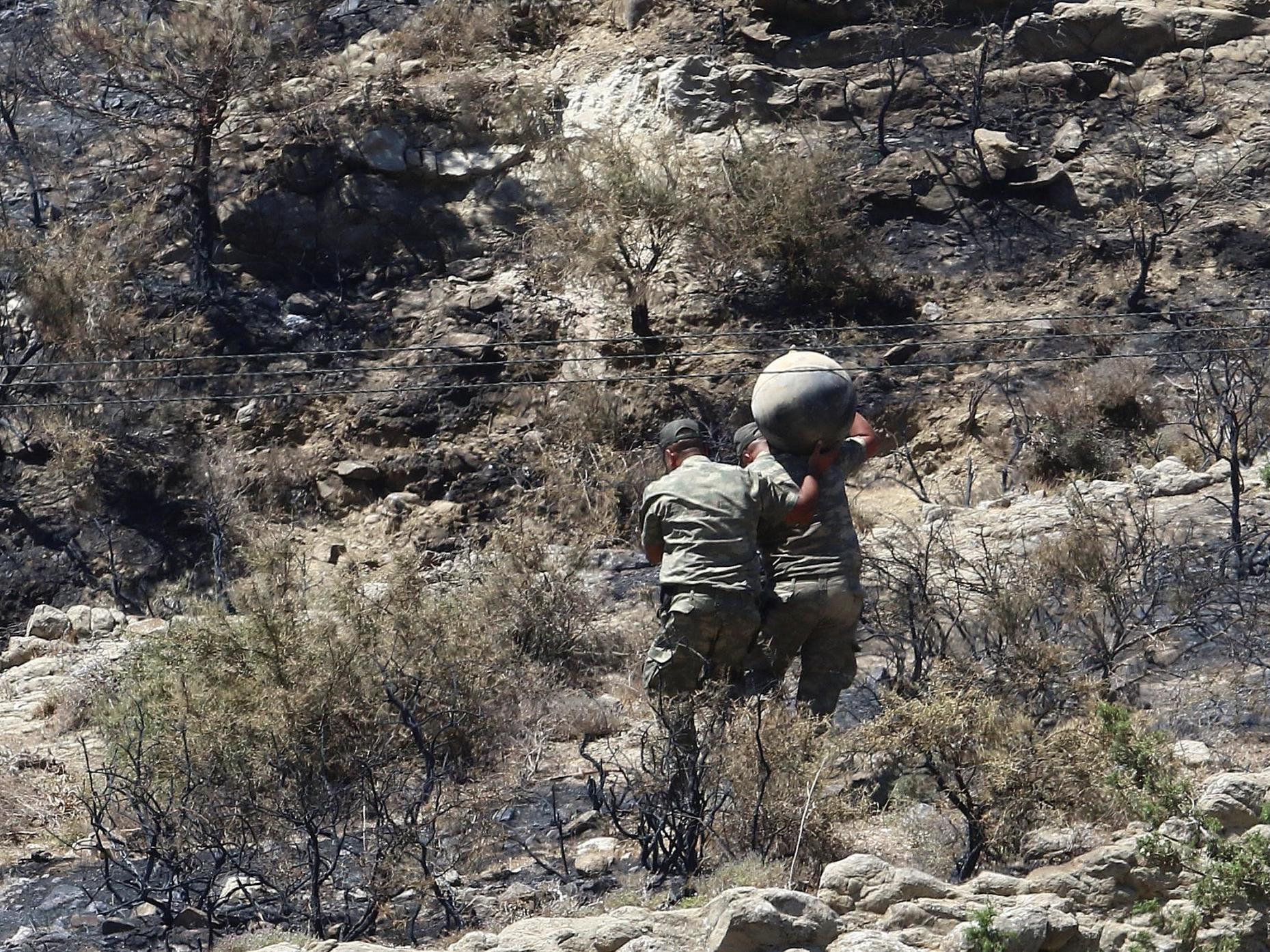‘Stray’ missile crashes near Cyprus capital
First assessments suggest Cyprus was caught in crosshairs of Israeli strike in Syria

Your support helps us to tell the story
From reproductive rights to climate change to Big Tech, The Independent is on the ground when the story is developing. Whether it's investigating the financials of Elon Musk's pro-Trump PAC or producing our latest documentary, 'The A Word', which shines a light on the American women fighting for reproductive rights, we know how important it is to parse out the facts from the messaging.
At such a critical moment in US history, we need reporters on the ground. Your donation allows us to keep sending journalists to speak to both sides of the story.
The Independent is trusted by Americans across the entire political spectrum. And unlike many other quality news outlets, we choose not to lock Americans out of our reporting and analysis with paywalls. We believe quality journalism should be available to everyone, paid for by those who can afford it.
Your support makes all the difference.A suspected stray missile crashed north of the Cypriot capital, Nicosia early on Monday, Turkish Cypriot officials said.
Ersin Tatar, the prime minister of Northern Cyprus, a breakaway state recognised only by Turkey, said that no one was hurt in a pre-dawn blast near the village of Tashkent, also known as Vouno, some 12 miles northeast of the capital.
The suspected missile fell on a mountainside around 1 am on Monday. The impact set hills ablaze and was heard for miles around.
Officials are studying debris at the crash site, but preliminary findings show that the object could be a stray missile coming from the Middle East.
"The first assessment is that a Russian-made missile ... which was part of the air defense system that took place last night in the face of an air strike against Syria," Turkish Cypriot foreign minister Kudret Ozersay said in a Facebook post.
Mr Ozersay said the missile likely blew up in mid-air because there was no impact crater and pieces of the object were found several kilometres from Tashkent/Vouno.
He said the writing on debris matches that found on pieces of a Russian-made S-200 missile that crashed in Gaziantep, Turkey, in July 2018.
He said that the missile might have fallen down on Cyprus after completing its range.
Mustafa Akinci, the Turkish Cypriot leader, linked the incident to military operations in the Middle East, although the military is carrying out further investigations to establish what it was.
“It is evident it is not something stemming from our soil,” he said. “It is one of the bad sides of the war in the region falling into our country.”
Cyprus is about 120 miles away from Syria. At the time of the explosion, Israeli warplanes were firing missiles targeting Syrian military positions in Homs and the Damascus outskirts in an attack that killed at least four civilians and wounded another 21.
If verified, it would be the first time that Cyprus has been caught in the crosshairs of military operations in the Middle East despite its proximity to the region.
A Greek Cypriot military analyst, Andreas Pentaras, agreed the debris suggested it was a Russian-made S-200 missile.
“It has Russian writing on it, so it suggests it is Russian made. Syria uses Russian-made missiles, so a not-so-safe assessment would be it was [...] an S-200 (missile),” Pentaras, a retired army general, told Sigma TV in Cyprus.
He said jamming technology could have diverted the missile.
Another expert, Zenonas Tziarras of the Geopolitical Cyprus, said the S-200 missiles were designed to explode in mid-air if they don’t hit a target.
Residents told Cypriot media they saw a light in the sky then three loud explosions were heard for miles around.
Tashkent/Vouno is a small village in the foothills of a mountain range rimming northern Cyprus. The village has two names because of the ongoing division of Cyprus – Tashkent is its Turkish name, but the village is also known by its Greek name of Vouno.
Authorities evacuated some homes, and Turkish Cypriot prime minister Tatar said that Turkish military authorities may assist in the ongoing investigation.
Cyprus was split in 1974. Turkey invaded the country after a coup by a group that supported a union with Greece.
The country’s internationally recognised government is seated in the Greek Cypriot south.
Only Turkey recognises a Turkish Cypriot declaration of independence and keeps more than 35,000 troops in the north.
Cypriot Defense Minister Savvas Angelides said government authorities are investigating the blast but refrained from speculating on its cause.
Additional reporting by Associated Press and Reuters
Join our commenting forum
Join thought-provoking conversations, follow other Independent readers and see their replies
Comments